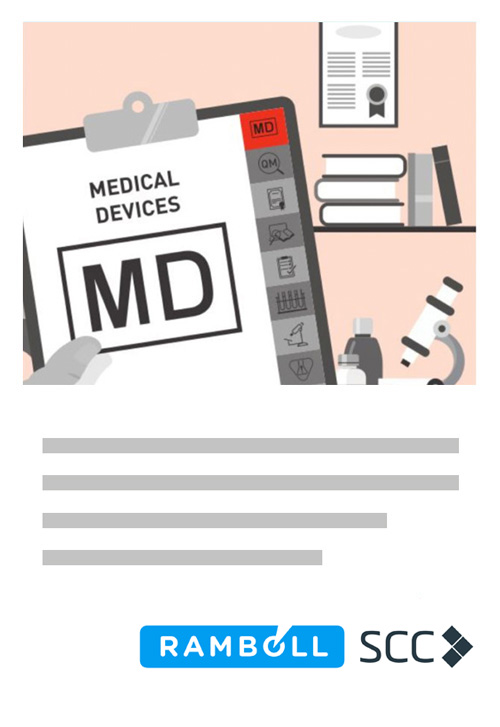Regulatory and Strategic Advice for IVD Market Compliance
Our Services for Newcomers and Established Companies
The In Vitro Diagnostic Device Regulation (IVDR) 2017/746 is a very comprehensive piece of legislation posing significant challenges for all stakeholders.
With long-lasting experience in the medical device industry, we understand the unique needs and challenges of your business and offer a comprehensive service to help in vitro diagnostics (IVD) companies effectively navigate and prepare for rapidly evolving regulatory requirements. Our expertise enables us to provide tailored solutions for all aspects of IVD approval, empowering your regulatory success and accelerating your path to market.
Our services include:
- Globally compliant quality management systems
- IVDR (EU) 2017/746 compliance services
- Risk management according to ISO 14971
- Performance evaluation and literature research
- Qualification and validation
Our Services at a glance

Together with you, we develop an implementation strategy best fitted to your needs
Learn how our experts can help you to adopt the regulatory requirements to your company with a minimum of effort.
Technical Documentation
The EU IVDR requires the technical documentation to be prepared in accordance with the requirements of Annex II by providing sufficient evidence that the safety and performance standards set out in Annex I are met.
We are your best choice if you plan and prepare your product for market approval:
- We provide a comprehensive documentation service, including developing evaluation plans, organising required tests and preparing expert reports.
- We offer trainings and provide templates to assist you file your technical documentation.
- We help you deal with nonconformities identified during an audit or documentation review.
IVDR (EU) 2017/746
The new In Vitro Diagnostic Regulation IVDR (EU) 2017/746 is valid since May 2022. Compliance with the new European regulation is a requirement for the CE marking and approval of your in vitro diagnostic medical devices.
As service provider, SCC pilots you through the new regulation, ensuring smooth implementation:
- We offer training in which you learn how to implement the IVDR in your company, helping you adopt the required procedures in line with ISO 13485.
- In close collaboration with you, we perform a gap analysis and develop individual concepts aimed at re-establishing conformity.
Specific Requirements for the Approval of In Vitro Diagnostic Medical Devices
The detailed requirements for medical IVD approval are defined in numerous standards and guidelines:
Quality management systems in line with ISO 13485 and other standards
Quality management systems play an important role for manufacturers of in vitro diagnostic medical devices. In vitro diagnostics are subject to the same requirements as medical devices. Our experts advise you on how to implement and optimise quality management systems and offer strategic, scientific and regulatory guidance on the implementation of quality-related processes, e.g. in R&D, production, and quality control.
Risk assessment of medical devices according to ISO 14971
One of the most important requirement with respect to safety and performance is the assessment of potential risks. The same risk management requirements apply to in vitro diagnostics as medical devices. Find out more how we can help you manage an internationally recognized risk management file.
Qualification and validation
Verification, qualification and validation play an important role in development, manufacture and quality control. Find out what you need to consider.
Performance Evaluation and Literature Research Services
If you manufacture or supply an in vitro diagnostic medical device for the European market, you should meet the obligations set out in the IVDR (EU) 2017/746. These obligations include in particular performance evaluations (Article 56 and Annex XIII Part A of the IVDR).
The IVDR (EU) 2017/746 mandates a structured and comprehensive approach to performance evaluation for in vitro diagnostic (IVD) devices. Manufacturers are required to establish the scientific correlation of the analyte, assess its analytical performance and then validate it clinically to confirm that the IVD meets the clinical requirements relevant to the current state of the art and intended use.
This involves the collection of high quality and sufficient data to demonstrate safety and performance of the device, allowing the manufacturer to critically assess the benefit-risk balance.
Performance evaluation includes the following steps:
- the performance evaluation plan (PEP),
- the performance evaluation report (PER),
- the literature research plan and report, and
- the preparation of the post-market performance follow-up plan.
The performance evaluation report serves as the comprehensive document in the evaluation process consolidating all results. Within the report, all results are summarized, analysed and interpreted, including benefit-risk assessments, to demonstrate the clinical evidence for your device.
The introduction of the IVDR (EU) 2017/746, significantly raised the standards for planning, conducting and updating performance evaluations.
Our experts provide tailor-made services, designed to meet your individual needs, including:
- providing expert support for your in-house literature search and performance evaluation process;
- helping you to handle deviations identified by your notified body.
In preparing the performance evaluation documents, we adhere to the latest guidelines to ensure that all necessary information and evaluations are presented precisely and purposefully. Where available, we incorporate relevant data from devices measuring the same analyte or marker.
In 2022, the Medical Device Coordination Group (MDCG) published the guideline titled “Guidance on general principles of clinical evidence for In Vitro Diagnostic medical devices (IVDs)” which provides a valuable framework, clarifying expectations and offering a structured approach to meeting IVDR requirements. However, even with this guideline, the performance evaluation process remains very complex and requires specialised expertise to ensure regulatory compliance.
Your Benefits
- Equipped with up-to-date and specifically customised literature, you gain valuable insights into your IVD’s ranking on the global market and the critical factors relevant for the medical practice
- Our expert performance evaluation service streamlines the conformity assessment process, helping you save time and progress more efficiently through notified body requirements
- With targeted literature evidence and expertly evaluated data, you can potentially avoid unnecessary performance investigations or post-market performance follow-up (PMPF) studies which may lead to significant cost savings.







